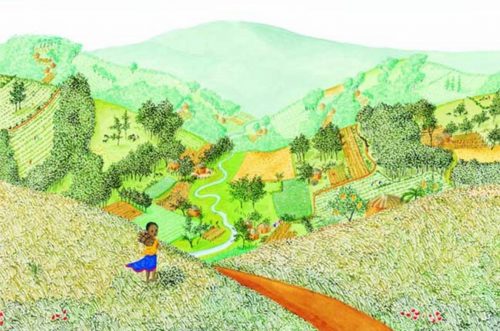9 August 2020
Ecological Literacy Resources
Our efforts to build a sustainable world cannot succeed unless future generations learn how to partner with natural systems to our mutual benefit. We need to become “ecologically literate.” The concept of ecological literacy advanced by the Center for Ecoliteracy in Berkeley, California, goes beyond the discipline of environmental education. It aims, says David Orr, “toward a deeper transformation of the substance, process, and scope of education at all levels”—familial, geographic, ecological, and political.

Eco-literacy books are on the rise for young readers, and it’s no wonder. With youth leaders like Greta Thunberg at the forefront of the climate change conversation, youths are becoming an increasingly outspoken and respected voice in the environmental moment. Riding this wave of awareness and eco-consciousness, publishers are seeing a rise in environmental children’s books.
Below are several books highlighting the life of Professor Wangari Maathai, providing children with a model of commitment, leadership, and diversity. As we adapt to living and learning at home, we hope these children’s books will provide an educational escape for young readers. And, with beautiful illustrations and inspirational topics, we think that adults just might enjoy them, too.
You will find also reports and essays that reveal the remarkable work being done by the Center’s network of partners. In one middle school, for example, culinary icon Alice Waters founded a program that not only gives students healthy meals but teaches them to garden—and thus to study life cycles and energy flows. Other hands-on student projects described here range from stream restoration and watershed exploration to confronting environmental justice issues at the neighborhood level.
With contributions from distinguished writers and educators, such as Fritjof Capra, Wendell Berry, and Michael Ableman, Ecological Literacy reflects the best thinking about how the world actually works and how learning occurs. Parents and educators everywhere will find it an invaluable resource.
Recommended books:
Ecological Literacy Resources here

